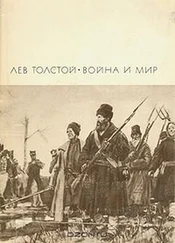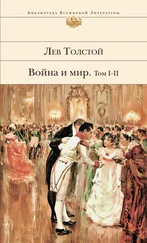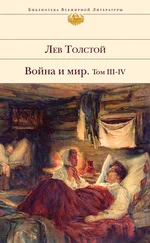| And the talkative Dolgorukov, turning now to Boris, now to Prince Andrew, told how Bonaparte wishing to test Markov, our ambassador, purposely dropped a handkerchief in front of him and stood looking at Markov, probably expecting Markov to pick it up for him, and how Markov immediately dropped his own beside it and picked it up without touching Bonaparte's. |
И словоохотливый Долгоруков, обращаясь то к Борису, то к князю Андрею, рассказал, как Бонапарт, желая испытать Маркова, нашего посланника, нарочно уронил перед ним платок и остановился, глядя на него, ожидая, вероятно, услуги от Маркова и как, Марков тотчас же уронил рядом свой платок и поднял свой, не поднимая платка Бонапарта. |
| "Delightful!" said Bolkonski. "But I have come to you, Prince, as a petitioner on behalf of this young man. |
- Charmant, [Очаровательно,] - сказал Болконский, - но вот что, князь, я пришел к вам просителем за этого молодого человека. |
| You see..." but before Prince Andrew could finish, an aide-de-camp came in to summon Dolgorukov to the Emperor. |
Видите ли что?... Но князь Андрей не успел докончить, как в комнату вошел адъютант, который звал князя Долгорукова к императору. |
| "Oh, what a nuisance," said Dolgorukov, getting up hurriedly and pressing the hands of Prince Andrew and Boris. "You know I should be very glad to do all in my power both for you and for this dear young man." Again he pressed the hand of the latter with an expression of good-natured, sincere, and animated levity. "But you see... another time!" |
- Ах, какая досада! - сказал Долгоруков, поспешно вставая и пожимая руки князя Андрея и Бориса. -Вы знаете, я очень рад сделать всё, что от меня зависит, и для вас и для этого милого молодого человека. - Он еще раз пожал руку Бориса с выражением добродушного, искреннего и оживленного легкомыслия. - Но вы видите... до другого раза! |
| Boris was excited by the thought of being so close to the higher powers as he felt himself to be at that moment. |
Бориса волновала мысль о той близости к высшей власти, в которой он в эту минуту чувствовал себя. |
| He was conscious that here he was in contact with the springs that set in motion the enormous movements of the mass of which in his regiment he felt himself a tiny, obedient, and insignificant atom. |
Он сознавал себя здесь в соприкосновении с теми пружинами, которые руководили всеми теми громадными движениями масс, которых он в своем полку чувствовал себя маленькою, покорною и ничтожной" частью. |
| They followed Prince Dolgorukov out into the corridor and met-coming out of the door of the Emperor's room by which Dolgorukov had entered-a short man in civilian clothes with a clever face and sharply projecting jaw which, without spoiling his face, gave him a peculiar vivacity and shiftiness of expression. |
Они вышли в коридор вслед за князем Долгоруковым и встретили выходившего (из той двери комнаты государя, в которую вошел Долгоруков) невысокого человека в штатском платье, с умным лицом и резкой чертой выставленной вперед челюсти, которая, не портя его, придавала ему особенную живость и изворотливость выражения. |
| This short man nodded to Dolgorukov as to an intimate friend and stared at Prince Andrew with cool intensity, walking straight toward him and evidently expecting him to bow or to step out of his way. |
Этот невысокий человек кивнул, как своему, Долгорукому и пристально-холодным взглядом стал вглядываться в князя Андрея, идя прямо на него и видимо, ожидая, чтобы князь Андрей поклонился ему или дал дорогу. |
| Prince Andrew did neither: a look of animosity appeared on his face and the other turned away and went down the side of the corridor. |
Князь Андрей не сделал ни того, ни другого; в лице его выразилась злоба, и молодой человек, отвернувшись, прошел стороной коридора. |
| "Who was that?" asked Boris. |
- Кто это? - спросил Борис. |
| "He is one of the most remarkable, but to me most unpleasant of men-the Minister of Foreign Affairs, Prince Adam Czartoryski.... |
- Это один из самых замечательнейших, но неприятнейших мне людей. Это министр иностранных дел, князь Адам Чарторижский. |
| It is such men as he who decide the fate of nations," added Bolkonski with a sigh he could not suppress, as they passed out of the palace. |
- Вот эти люди, - сказал Болконский со вздохом, который он не мог подавить, в то время как они выходили из дворца, - вот эти-то люди решают судьбы народов. |
| Next day, the army began its campaign, and up to the very battle of Austerlitz, Boris was unable to see either Prince Andrew or Dolgorukov again and remained for a while with the Ismaylov regiment. |
На другой день войска выступили в поход, и Борис не успел до самого Аустерлицкого сражения побывать ни у Болконского, ни у Долгорукова и остался еще на время в Измайловском полку. |
| CHAPTER X |
X |
| At dawn on the sixteenth of November, Denisov's squadron, in which Nicholas Rostov served and which was in Prince Bagration's detachment, moved from the place where it had spent the night, advancing into action as arranged, and after going behind other columns for about two thirds of a mile was stopped on the highroad. |
На заре 16 числа эскадрон Денисова, в котором служил Николай Ростов, и который был в отряде князя Багратиона, двинулся с ночлега в дело, как говорили, и, пройдя около версты позади других колонн, был остановлен на большой дороге. |
| Rostov saw the Cossacks and then the first and second squadrons of hussars and infantry battalions and artillery pass by and go forward and then Generals Bagration and Dolgorukov ride past with their adjutants. |
Ростов видел, как мимо его прошли вперед казаки, 1-й и 2-й эскадрон гусар, пехотные батальоны с артиллерией и проехали генералы Багратион и Долгоруков с адъютантами. |
| All the fear before action which he had experienced as previously, all the inner struggle to conquer that fear, all his dreams of distinguishing himself as a true hussar in this battle, had been wasted. |
Весь страх, который он, как и прежде, испытывал перед делом; вся внутренняя борьба, посредством которой он преодолевал этот страх; все его мечтания о том, как он по-гусарски отличится в этом деле, - пропали даром. |
| Their squadron remained in reserve and Nicholas Rostov spent that day in a dull and wretched mood. |
Эскадрон их был оставлен в резерве, и Николай Ростов скучно и тоскливо провел этот день. |
| At nine in the morning, he heard firing in front and shouts of hurrah, and saw wounded being brought back (there were not many of them), and at last he saw how a whole detachment of French cavalry was brought in, convoyed by a sotnya of Cossacks. |
В 9-м часу утра он услыхал пальбу впереди себя, крики ура, видел привозимых назад раненых (их было немного) и, наконец, видел, как в середине сотни казаков провели целый отряд французских кавалеристов. |
| Evidently the affair was over and, though not big, had been a successful engagement. |
Очевидно, дело было кончено, и дело было, очевидно небольшое, но счастливое. |
| The men and officers returning spoke of a brilliant victory, of the occupation of the town of Wischau and the capture of a whole French squadron. |
Проходившие назад солдаты и офицеры рассказывали о блестящей победе, о занятии города Вишау и взятии в плен целого французского эскадрона. |
| The day was bright and sunny after a sharp night frost, and the cheerful glitter of that autumn day was in keeping with the news of victory which was conveyed, not only by the tales of those who had taken part in it, but also by the joyful expression on the faces of soldiers, officers, generals, and adjutants, as they passed Rostov going or coming. |
День был ясный, солнечный, после сильного ночного заморозка, и веселый блеск осеннего дня совпадал с известием о победе, которое передавали не только рассказы участвовавших в нем, но и радостное выражение лиц солдат, офицеров, генералов и адъютантов, ехавших туда и оттуда мимо Ростова. |



